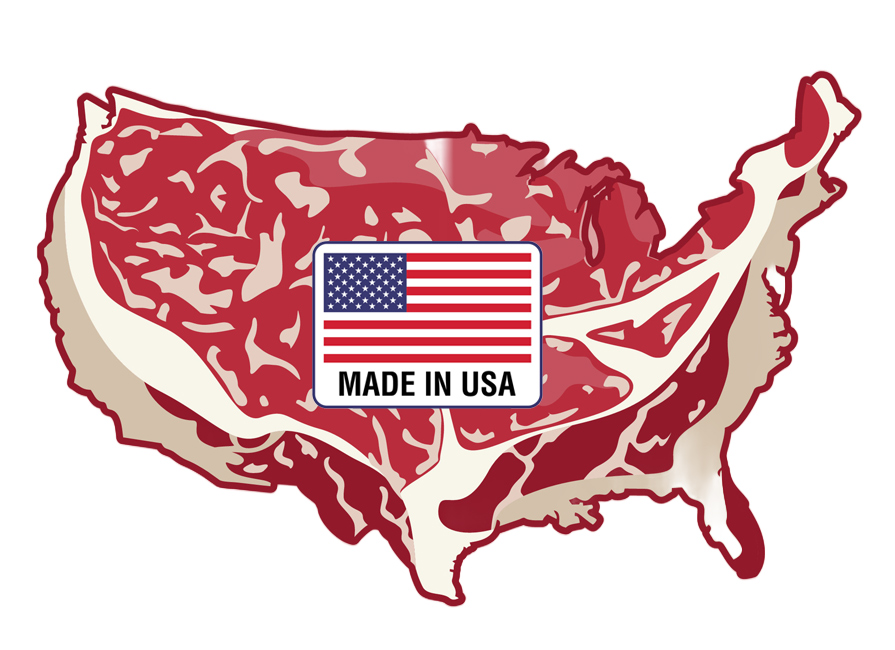In today's increasingly food-conscious world, consumers expect a label to mean what it says—including the…
False Organic Egg Claims Come Home To Roost
I’m sorry to say it, but news that a large-scale “organic” egg producer is being sued for making misleading marketing claims about the welfare of its chickens comes as no real surprise. To be honest, I’m more shocked that it’s taken this long to make the headlines.
Several news agencies are reporting that the Animal Legal Defense Fund (ALDF) has filed a class-action lawsuit against Judy’s Family Farm Organic Eggs and Petaluma Egg Farm for allegedly violating California’s consumer protection laws. Judy’s Family Farm Organic Eggs cartons feature images of hens roaming on an expansive green field, while the carton wording states that the hens are “raised in wide open spaces in Sonoma Valley, where they are free to ‘roam, scratch, and play’.” However, the ALDF claim that the organic hens at Judy’s Family Farm “are crammed in covered sheds with no outdoor access. Implying their hens are free-range when they are not provides an unfair advantage over actual free-range egg producers, and also cheats consumers.” The complaint? The packaging used by these egg producers leads consumers to mistakenly believe the eggs come from free-range hens. From what I know about the farm in question, I couldn’t agree more.
When people buy organic eggs they expect the hens to have plenty of space and free access to pasture, where the birds can exhibit their natural behaviors. After all, that’s why most people are willing to pay the organic premium. But, as this lawsuit may in fact highlight, a minority of so-called organic operations are repaying this trust with downright deceit.
I’m only too aware of the shocking limitations of the National Organic Program and the unsavory practices that some unscrupulous operators can get away with – and yet still market their eggs as “organic” to unwitting consumers. I’m talking about industrial farms where tens of thousands of “organic” birds are kept indoors in a single house, where their outdoor access consists of nothing more than a tiny concrete area or an enclosed wooden porch. As any farmer worth his or her salt will know, the reality is that most of these birds will never actually venture outside to peck at grass or eat bugs. Some of these major “organic” operations can even get away with providing no outdoor access at all on the basis of a statement from their veterinarian of a “hypothetical” disease risks to the birds from outdoor access – and still market their eggs as organic. If you don’t believe me, read the Cornucopia Institute’s excellent exposé of the industrial organic egg scandal that is threatening the very existence of the real organic farms out there.
I know countless certified organic farmers who are farming in the organic spirit, who pride themselves on the highest welfare standards, and whose livestock facilities far exceed the alleged conditions at Judy’s Family Farm. Many of these organic farmers are also part of the Animal Welfare Approved (AWA) program – a clear statement of their dedication to providing their animals with the highest standards of welfare. At AWA, we know that keeping appropriate numbers of hens in a given field space, combined with a strategy of moving the birds regularly around the fields on the farm, can massively reduce the incidence of parasites and other health and disease problems, as well as allowing birds to perform their natural behaviors. Research shows that outdoor pasture- and range-based systems deliver higher welfare for animals, as well as a range of health and nutrition benefits from the products that pasture-raised animals provide.
As the old saying goes, “You can fool some of the people all of the time, and all of the people some of the time, but you cannot fool all of the people all of the time.” While there are still many reputable organic farmers who are passionate about the organic ethos, I am afraid that a small minority of operations are only interested in providing the minimum welfare for their livestock – and whose sole aim is to maximize profit at all cost. The problem is that these operators can supply “organic” eggs on a massive scale and, as a result, they are slowly wiping out real organic farmers out there who are farming to the high standards that consumers reasonably expect. And they are cheating consumers, too.
At AWA, we don’t accept cheats. So when you see the AWA logo on a carton of eggs, it’s your guarantee that the hens were raised outdoors in accordance with the highest animal welfare standards of any program in the U.S. and Canada. In fact, AWA is also the only farm certification which guarantees the animals were raised outdoors for their entire lives on an independent family farm, using truly sustainable agriculture methods. No other food label offers these distinctions. And as we don’t charge farmers any fee to participate, the program can remain completely independent and impartial in its auditing. The result? An unrivaled level of both the integrity of the program and consumer trust in the AWA logo.
In this social media age, people are waking up to the fact that commonly used food claims and terms like “all natural” or “free-range” – and even “organic” – can actually mean very little, and are often used to hide the same old intensive farming systems. If there was one positive outcome from the “Pink Slime” debacle, it was that it served as an urgent wake-up call to the entire food industry. Any food business that continues to abuse consumer trust simply for short-term profit does so at its own peril.




